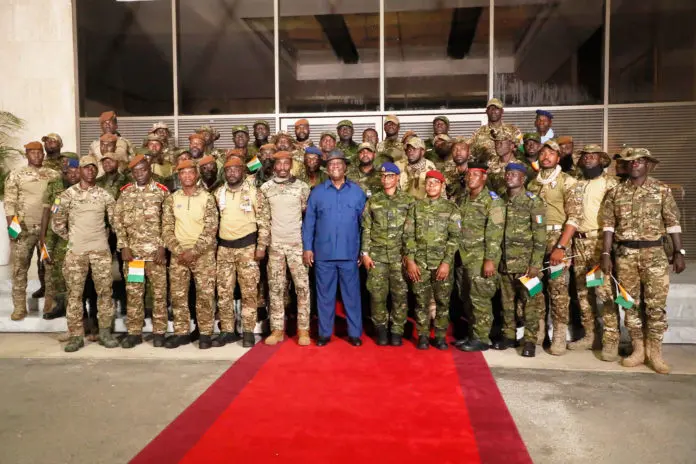- P.O. Box: 11482 Yaoundé, Cameroon; Headquarters: Efoulan, Yaoundé 3
- contact@caessinternational.org

The return to Abidjan on Saturday, January 7, of the 46 Ivorian soldiers detained in Mali marks the end of a six-month standoff between the authorities of the two countries. Pardoned two days earlier by the Malian transitional president, Assimi Goïta, these soldiers had been sentenced on December 30 by the Malian justice system to 20 years in prison for "crimes of attack and conspiracy against the government." This marks the conclusion of a diplomatic crisis full of twists and turns. The case sparked intense tensions between two “brother” and neighboring countries with already complicated relations: Mali had accused Côte d’Ivoire of encouraging its West African partners to toughen sanctions against the soldiers responsible for two coups d’état, in August 2020 and May 2021, sanctions that were eventually lifted in early July.
President Gnassingbé, who expressed his “pleasure” at the pardon granted to the soldiers, played a decisive role in securing their release, and both Malian and Ivorian authorities paid tribute to his mediation. Thus, the Transitional Government renewed its deep gratitude to the Togolese President, H.E. Faure Gnassingbé, for his tireless efforts and constant commitment to dialogue and peace in the region. This episode showcased the experienced Faure Gnassingbé and the skilled Robert Dussey, respectively President of the Republic and Minister of Foreign Affairs of Togo.
Indeed, this outcome crowns an undeniable diplomatic victory for Lomé. In this matter, there was a single interlocutor recognized by both parties—the Togo, notes Francis Kpatindé. Conversely, this diplomatic success for Togo is seen as a slap in the face to Umaro Sissoco Embalo, the current Chairperson of ECOWAS. In this respect, Francis Kpatindé reminds us not to forget that it was a member of ECOWAS who helped resolve the dispute. For him, this is therefore a setback for the incumbent ECOWAS president.
This victory of Togolese diplomacy proves that Africa is capable of finding solutions to its problems on its own, even as African institutions and regional or sub-regional organizations are losing credibility and trust among African populations. The failure of the international community in this matter serves as a reminder that Africa cannot rely on others to find the best formula for its challenges.